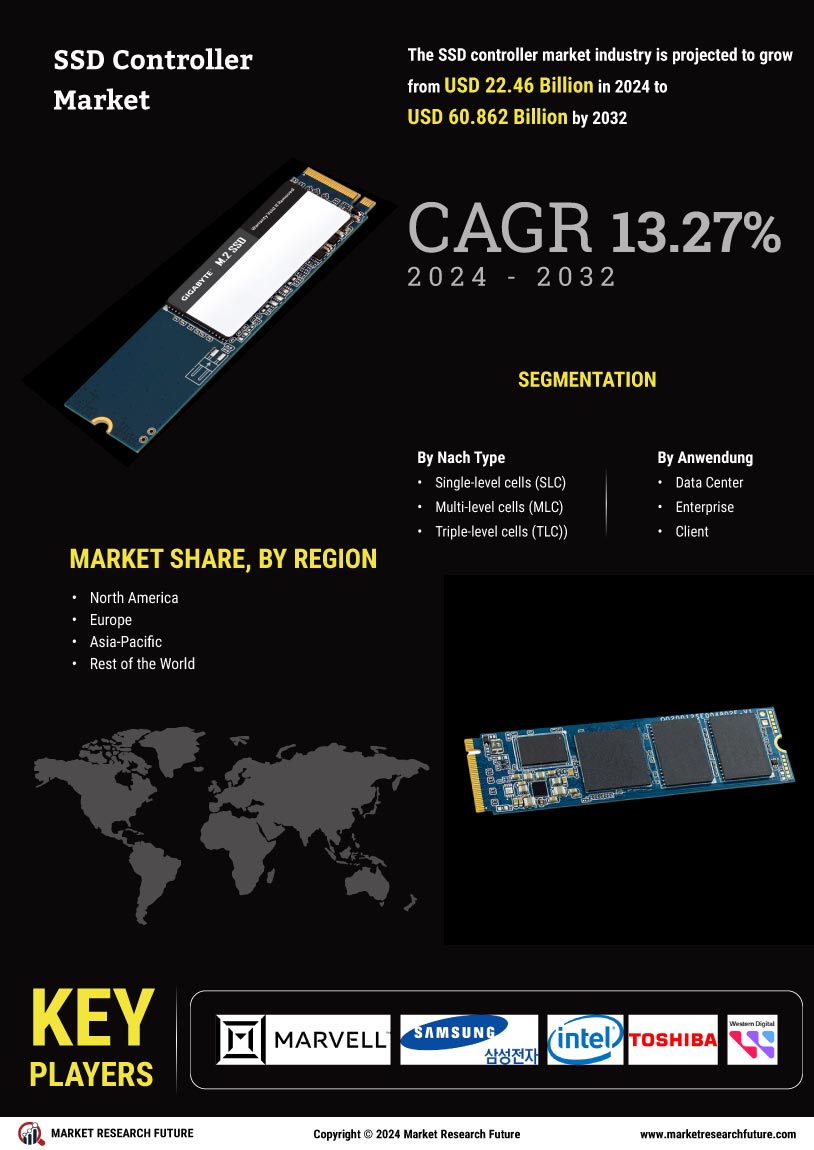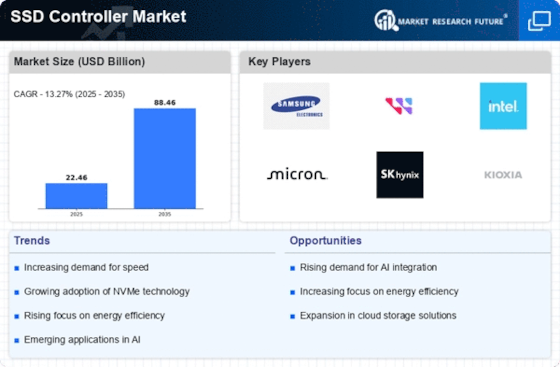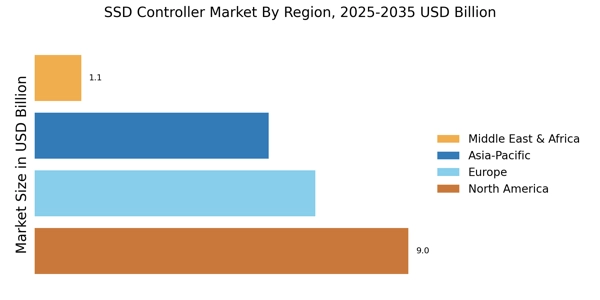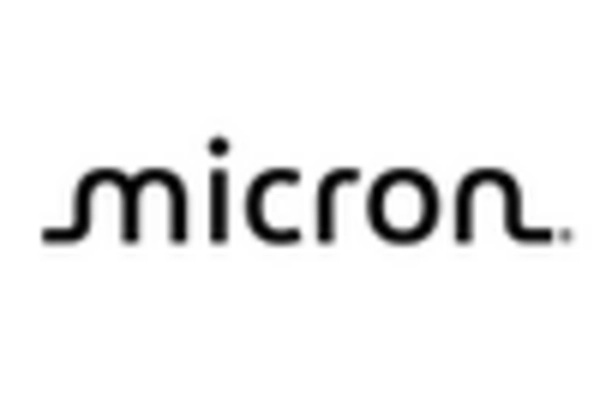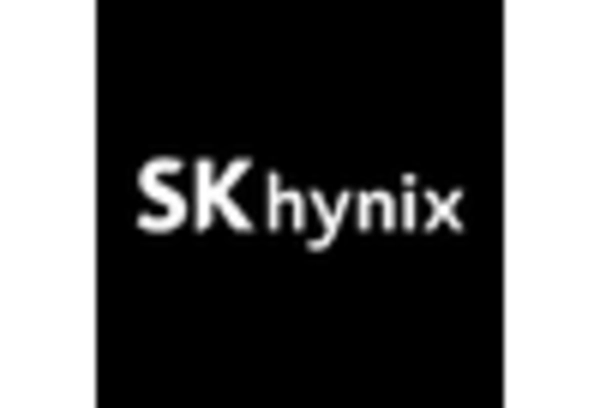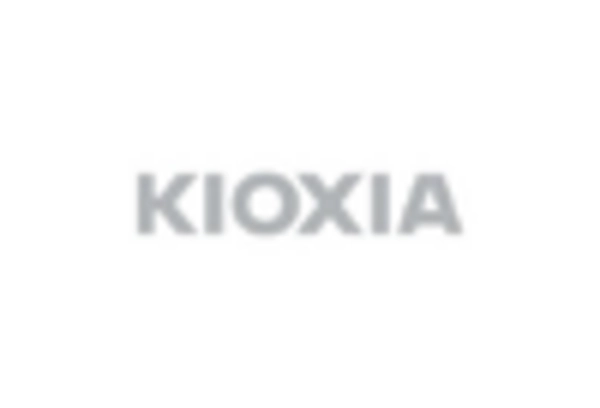Research Methodology on SSD Controller Market
Introduction
Market Research Future (MRFR)’s exploration report on the Global Solid State Drive (SSD) Controller Market provides a comprehensive analysis of the global market for SSD Controller. As the developers’ emphasis shifts towards continuous innovation and device upgrades, the demand for an accurate and reliable analysis of the market has increased more than ever. To provide this in-depth analysis of the market, a detailed study of the global market has been conducted using various secondary and primary research methodologies.
The report provides insights on the different elements which form the market structure. The market structure answers questions such as what is the market concentration for the product, what are the different economic factors driving the development of the market, and what is the market share of different entities in the market, thus helping the reader draw insights on the development of the market during 2023 to 2030. Additionally, market dynamics such as value chain analysis, government regulations, market drivers, and restraints, market size, opportunities, and projections are also explored in the report to provide a broader picture of the global solid-state drive controller market.
Research Methodology
To provide a comprehensive analysis of the global SSD controller market, MRFR completes an in-depth assessment of the competitive market payers and the related market shares. The report also provides the primary research process followed by the employees and the secondary research process which have been followed and should be followed in the future to identify valuable insights and information about the market. The primary research process is further discussed below.
Primary Research
Primary research deals with direct interaction and consultation with industry experts, market participants, politicians, and professionals. This direct interaction helps create a more clear and reliable picture of the present market situation and the future of the market. The primary research process includes information sourced from face-to-face interviews, telephonic interviews, and direct interactions with professionals. Generally, the primary research process requires intensive resource deployment over a short period of time in order to capture the desired information.
Secondary Research
Secondary research, on the other hand, refers to the study of various sources like company reports, press releases, newspapers, magazines, and the Internet. This type of research usually requires less time and there is less risk involved. Secondary research is also used to further validate primary research results and provide more reliable information about the market players. Sources of secondary research include industry data from third-party databases like Bloomberg and Statista, newsletters, and company websites.
Research Objectives
The primary research objective of the report is to provide insights into market dynamics and its outlook. The research mainly focuses on the understanding of market drivers, restraints, value chain analysis, technological developments, recent launches, and fragmentation of the market. In addition, the primary research also focuses on better understanding the market structure in terms of market shares, regional presence, competitive landscape, and their profiles.
Data Triangulation
To ensure the accuracy of data, MRFR uses data triangulation techniques to confirm the accuracy and validity of information collected from primary and secondary sources. Data triangulation techniques include factor analysis, time-series analysis, and demand-side and supply-side data triangulation. These techniques help MRFR refine and validate the data collected from both primary and secondary sources.
Research Paradigm
The report follows both bottom-up and top-down approaches in order to arrive at conclusions. The bottom-up approach involves analysis of market data points at each segment and each market segment's contribution to the larger market; while the top-down approach involves macro-level analysis of market data points such as the factors driving the market, market share, size and trends. The report also follows a combined approach of mixing both bottom-up and top-down approaches.
Based on the research goals, the report follows a combined approach for data collection and flow of information inclusive of bottom-up and top-down approaches where the data analysis is verified from both top and bottom levels. A thorough investigation of each section has been utilized to comprehend the development pattern in detail. In addition, component and sectional surveys are performed regardless of whether the organization teams discover difficulty in distinguishing the forecast figures.
Primary Research Sources
To validate the market research, the primary research sources include suppliers, vendors, consumers, and co-members present in the ecosystem. It includes both internal and external sources while carrying out primary research. Internal sources include production, design, sales, and customer support teams, whereas external sources involve industry professionals and vendors.
Primary Research Methodology
Before the commencement of the primary research phase, MRFR first finalizes the primary and secondary sources of data. After the selection of the source, the primary research process starts wherein a survey questionnaire is finalized. The questionnaire comprises questions regarding market definition, industry segments, target audience and other relevant information. All the answers to the questions are sent back to the research team, who then analyse and collate the responses to finalize the primary research report.
Secondary Research
The secondary research includes secondary sources such as government documents, paid databases like Bloomberg, Statista, Gartner, Bloomberg, and IC Insights; NASDAQ, investor presentations, corporate publications, and other related publications. Other than this, MRFR also makes use of economic, demographic, and environmental data to conduct a detailed analysis of the market. A thorough analysis of the competitive landscape is also done to identify the market leaders, market size, and market trends.
For better insight into the market, primary sources are further used for analysis and triangulation. After tabulation of data collected from various online and offline resources, the final market research report is finalized after a thorough analysis of the primary and secondary research reports.
Conclusion
To summarize, the research report provides a comprehensive overview of the global SSD controller market in terms of market size, market share, revenue, growth rate, and other market parameters. The report includes primary and secondary research methods which are used to provide an accurate overview of the market. Additionally, data triangulation techniques such as factor analysis, time-series analysis, and demand-side and supply-side data triangulation have been used to validate the data obtained from both primary and secondary sources. It is expected that the report will help the readers in making informed decisions about their investments in the global solid-state drive controller market.
